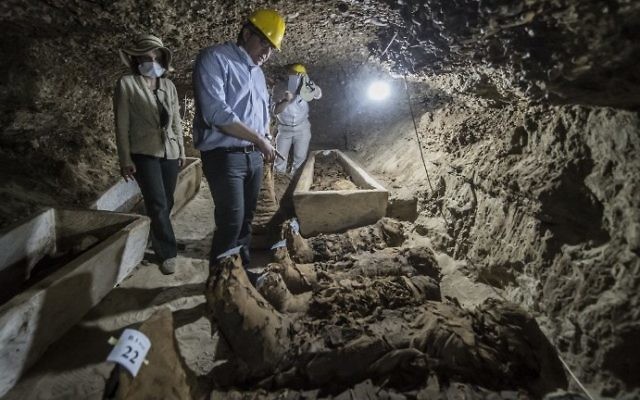Antiquities ministry hails ‘unprecedented’ discovery in south Cairo necropolis as a boost to struggling tourism industry

TOUNA EL-GABAL, Egypt (AFP) — Egyptian archaeologists have discovered 17 mummies in desert catacombs in Minya province, an “unprecedented” find for the area south of Cairo, the antiquities ministry announced Saturday.
Archaeologists found the non-royal mummies in a series of corridors after following the trail of burial shafts in the Touna-Gabal district of the central Egyptian province, the ministry said in a statement.
Along with the mummies, they found a golden sheet and two papyri in Demotic — an ancient Egyptian script — as well as a number of sarcophogi made of limestone and clay.
The ministry said they belonged to the Late Period, which spanned almost 300 years up to Alexander the Great’s conquest of Egypt in 332 BC.
But a spokeswoman told AFP they could also date from the Ptolemaic Dynasty, founded by Alexander the Great’s general Ptolemy.
The discovery of the non-royal mummies is considered unprecedented because it is the first such find in the area, officials said at the site.
